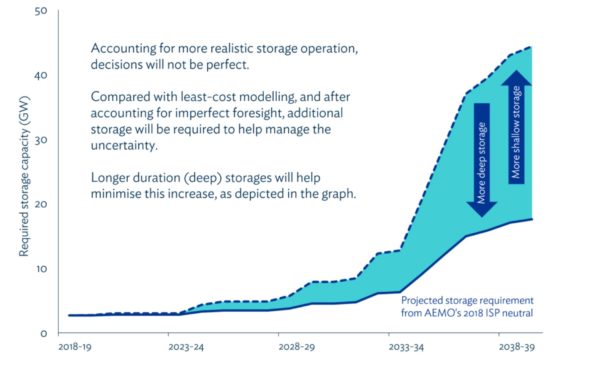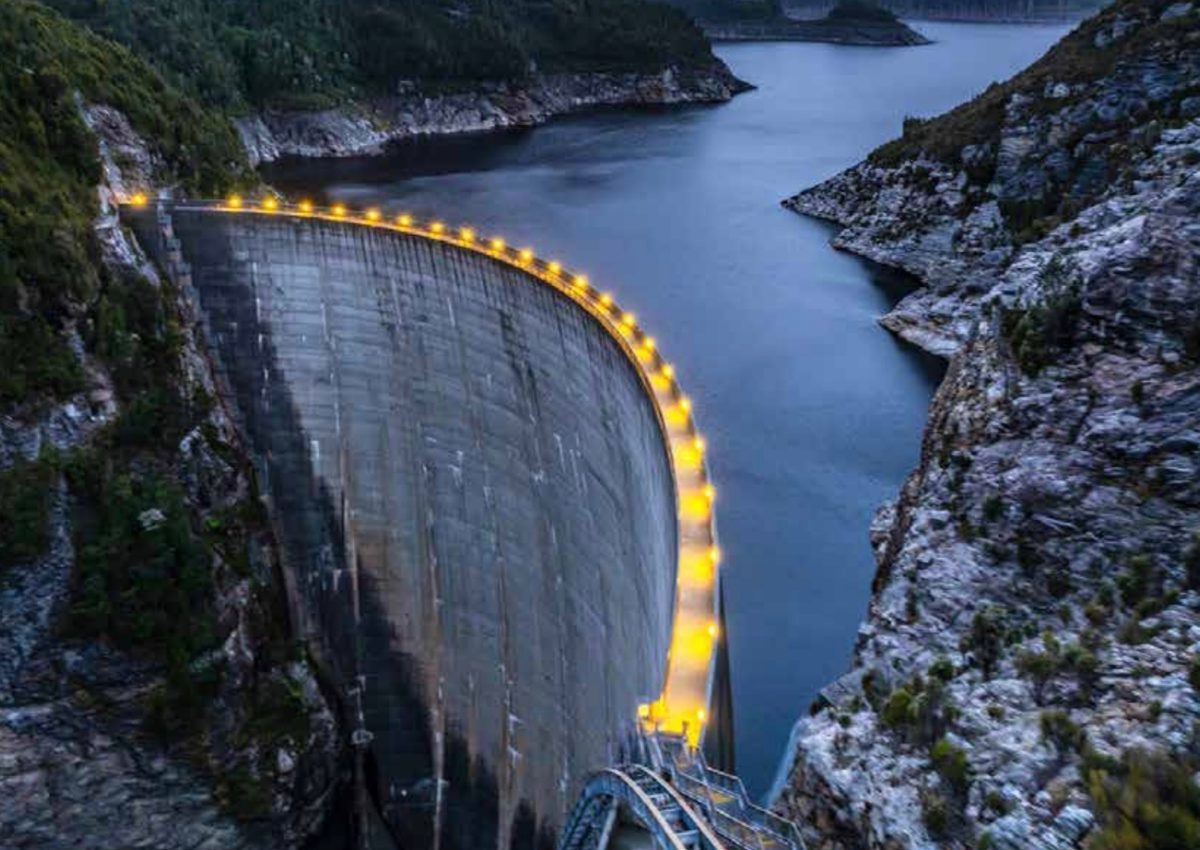Tasmania’s ambition of becoming the Battery of the Nation is unwavering. Indeed, Tasmania hasn’t been this adamant about something since it decided the Tasmanian Tiger was less important than the odd sheep.
New analysis from the Australian Renewable Energy Agency (ARENA) and Hydro Tasmania demonstrates the importance of deep storage to the reliability and resilience of our future energy market. And the best option for deep storage is the expansion of Tasmania’s hydropower system.
According to the paper, analysis of conceptual storage operation over the last 4-5 years shows that short-duration storage is far less effective when compared to deep storages of 12 hours plus. Moreover, “Tasmania could cost-effectively provide an additional 1500 MW of firm supply by extending our existing hydropower system with deep storage pumped hydro.”
According to the Insights paper, long-duration storage can better handle forecast uncertainty and will be better placed to manage potential challenges such as:
• Large low-pressure zones (wind droughts)
• Large cloud bands (days of low solar)
• Extended asset outages (transmission or supply)
“Deep storage can provide cost-competitive, reliable back-up to efficiently support Australia’s energy transformation as wind and solar become more prevalent,” said Hydro Tasmania CEO Steve Davy. “And deep storage is more resilient to future market uncertainty, being able to supply energy for days at a time if needed, to ensure the stable and reliable electricity that customers expect.”

The Deep Storage Future NEM
Until the National Electricity Market (NEM) transitions into the energy world of the 21st Century, the energy transition itself will lack legs to stand on. There are significant plans for an NEM 2.0, such as the two-sided market and more transmission investment, but clearly a future NEM in which renewables such as solar and wind are predominant requires significant amounts of storage.
“Our latest analysis shows that Tasmania has the deep storage the future market needs, and we can deliver new energy supply at costs lower than other known market options,” continued Davy. “Combining our significant hydropower and pumped hydro capacity with low-cost wind and solar gives Tasmania a strong competitive advantage, and Tasmania stands ready to support the energy market transition.”
Don’t Forget Green Hydrogen
We can’t forget that part of Tasmania’s ambition to becoming Battery of the Nation via its hydro-storage is also its potential as a green hydrogen powerhouse.
Tasmanian Minister for Energy, Guy Barnett, recently noted Tasmania’s ideal positioning in the energy transition as a green hydrogen powerhouse. “Tasmania has a proud 100-year history of hydro-industrialisation which has established our presence as the renewable energy state of Australia,” said Barnett.
Key to Tasmania’s ambitions are these interdependent major national renewable energy projects, Project Marinus and Battery of the Nation (BON). BON is an initiative which seeks to utilise Tasmania’s comparative advantage in pumped hydro storage to back up the mainland NEM, particularly in Victoria. The backup would free up enormous quantities of wind and solar currently suffering languidly due to grid congestion. Of course, in order to supply the storage there needs to be a new interconnector between Tasmania and Victoria, hence the Marinus Link.
“The green light for the state’s first pumped hydro development and more interconnection will mean a huge injection of investment and jobs to Tasmania,” said Davy. “This reinforces the need to keep progressing Battery of the Nation and Marinus Link.”
This content is protected by copyright and may not be reused. If you want to cooperate with us and would like to reuse some of our content, please contact: editors@pv-magazine.com.









By submitting this form you agree to pv magazine using your data for the purposes of publishing your comment.
Your personal data will only be disclosed or otherwise transmitted to third parties for the purposes of spam filtering or if this is necessary for technical maintenance of the website. Any other transfer to third parties will not take place unless this is justified on the basis of applicable data protection regulations or if pv magazine is legally obliged to do so.
You may revoke this consent at any time with effect for the future, in which case your personal data will be deleted immediately. Otherwise, your data will be deleted if pv magazine has processed your request or the purpose of data storage is fulfilled.
Further information on data privacy can be found in our Data Protection Policy.